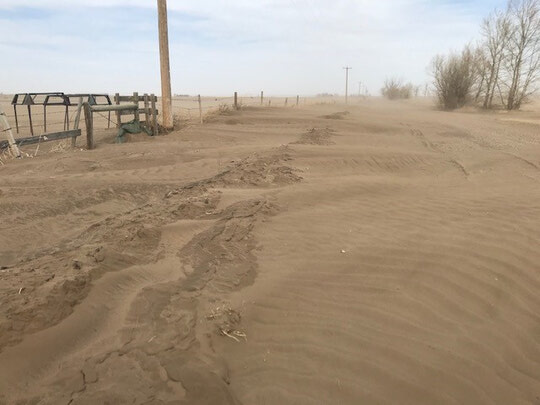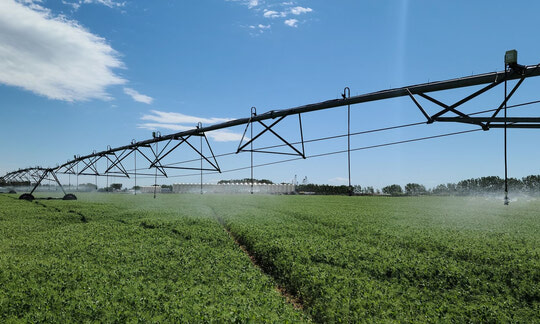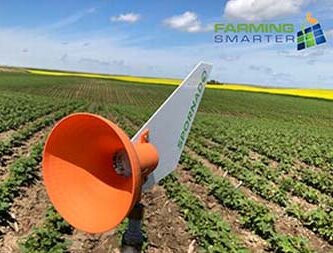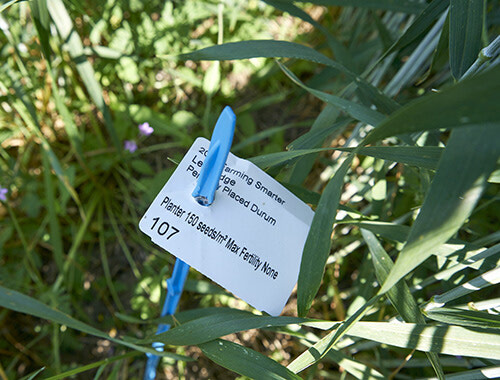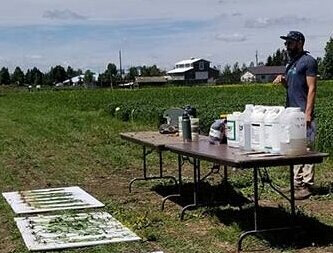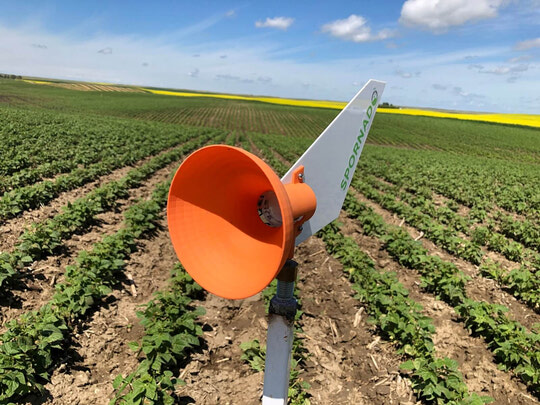News and updates
Keep up to date with the latest articles and new releases from the Farming Smarter.
If you've ever seen things exploding in an agriculture research presentation, you were probably watching a presentation by Mike Gretzinger, Farming Smarter Research Coordinator.
To continue the conversation around soil nitrogen in agriculture, let's talk about how plants uptake nitrogen from the soil in nitrate (NO3-) and ammonium (NH4+) forms.
Why scout for disease after harvest?
Harvest means the end of the crops, but the job's not done yet. A thorough field scouting after harvest is important to provide insight into the future wellbeing of your crops.
Should you have the chance to sit and talk with Amber Kingcott, her genuine concern for farmers, farms and farming shines through instantly. She comes from farm families on both sides and, clearly, loves all things farm related.
For the CHTA variety trials, we're doing things a little bit differently - we've broken our trials into two separate plots, one looking at fibre agronomy & the other investigating grain agronomy.
Soil erosion has negative effects, not just for the landowner losing precious soil, but also for neighbouring lands, roads, ditches, and buildings. In Alberta, the Soil Conservation Act and the Agricultural Service Board Act pair up to provide protection for this soil and help ensure longevity of agriculture in the province.
Use of cover crops has been increasing throughout the Prairies, but little is known about their benefits & detriments.
A Farming Smarter project is investigating how to incorporate cover crops in the fall season. Our strategy is to implement them within crop rotations.
Lewis Baarda, Farming Smarter Field Tested Manager, sits down with project partners Kevin Cussen and Mark Johnson to outline the project and the challenges it plans to address for water efficiencies under irrigation.
Nicole Rasmussen of Corteva AgriScience talks about canola seed size, corn crops, planting methods and planting depths with Mike Gretzinger of Farming Smarter.
Rachael Melenka of 20/20 Seed Labs talks with Lewis Baarda of Farming Smarter about the Spornado spore trap that offers a cost effective alternative to more expensive spore traps.
Precision planted durum trials test the effects of agronomy tools on the yield of irrigated durum. We test precision planted versus air seeding planted plots; different seeding and nutrient rates; varying row spacing; and more.
What a joy to be at a live field day! A day full of sunny skies, good jokes, and informative presentations! Our Lethbridge Plot Hop was a phenomenal success, and we're beyond happy to have spent it with fantastic people. Getting people back in the field..
Mike Gretzinger, Farming Smarter Research Coordinator and Ryan Bonnett of Stoller Enterprises talk about the efficacy and reality of biostimulants in field scale applications.
Environmental factors can affect the way nitrogen fertilizers work in a crop particularly when surface applied.
Surface applied ammonium-based fertilizers such as urea or urea ammonium nitrate (UAN) can lose nitrogen through ammonia volatilization
This is a convoluted FHB study to explain, but here we go. Led by Randy Kutcher, Plant Sciences Professor, USask College of Agriculture & Bioresources, the study aims to find optimum crop rotations for control of Fusarium Head Blight (FHB).
Board Director Adrian Moens is far too modest when it comes to talking about his contributions to Farming Smarter. His long-standing association with Executive Director Ken Coles means Adrian watched Farming Smarter grow from its infancy.
Kochia enjoys a dry, hot year. There is less competition from the crops. Due to the lack of precipitation this year, many crops have experienced inhibited growth which leaves more resources available to the pesky weed.
If you're spending that money, you want to know it's going to work - but how do you know if you need to spray your crops before it's too late?
Gurbir Dhillon Ph.D. took the Long Road to Tipperary… well, Lethbridge actually. He started in India where he grew up and attended the Punjab Agricultural University to earn his BA.
Above ground and below ground biomass are strong indicators of crop health and yield potential.
Field Tested is up and rolling again for the 2021 research season with 23 on-farm trials located across Southern Alberta.
Meet the man that is the silent backbone of the shop, keeping everything up & running - Toby Mandel, Farming Smarter Site Manager. Anyone that owns equipment needs a Toby. He can build, weld and maintain all the working parts needed to run just about anything in top shape.
Most of the nitrogen in soils occurs in the form of organic molecules. Inorganic nitrogen forms generally account for 1-2% of total soil nitrogen unless land managers apply large amounts of nitrogenous fertilizers to soils.

